By Liana Jacob
MEET THE FAMILY-OF-NINE who live an off-grid lifestyle which sees them use an eco-friendly composting toilet despite critics telling them they live like “poor people” and have been HOME-SCHOOLING FIVE of their children to stay connected to them.
Mum-of-seven, home educator and homesteader, Jasmine Kosach (31), from Tasmania, Australia, grew up with an appreciation for all things nature, due to her mum and nana being gardeners.
Jasmine and her husband, Ben, had a garden maintenance business which didn’t do very well and saw them struggle financially. After this difficult time, in May 2017, they decided to start a holistic, off-grid life in a shack to help the planet as well as live an economic lifestyle.
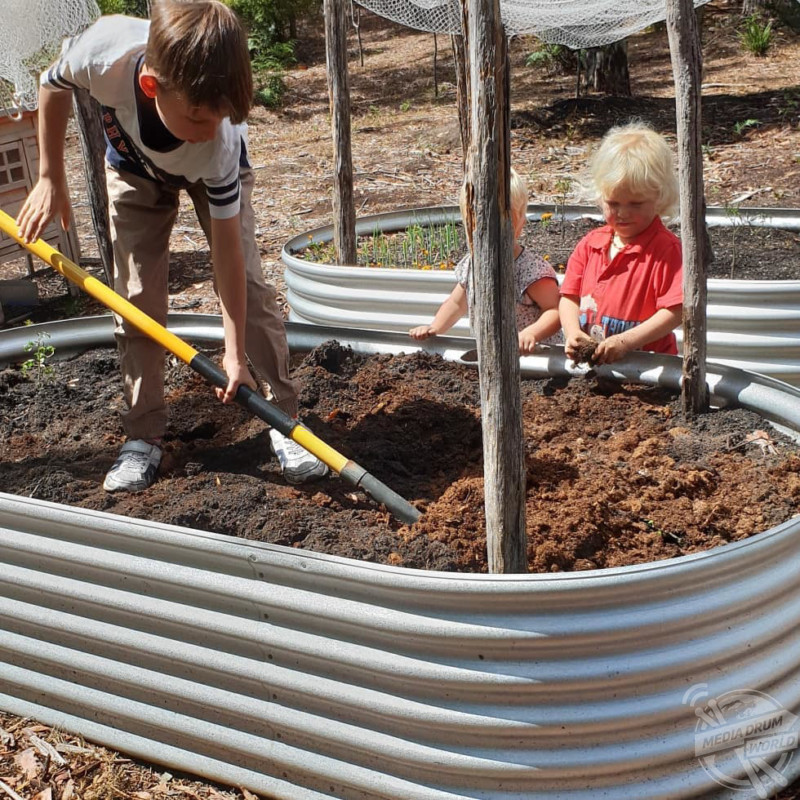
Since then they have been living off necessities, including using a tank of water, a small amount of solar power and using a generator for using computers and power tools.
Jasmine and Ben have also been home-schooling their children; Wallace (11), Lucy (10), Ronan (8), Hattie (7) and George (5), while looking after their toddler Morris (2) and Vera, who is eight-months-old.
They plan to move out of their little shack and do a full-shed conversion to increase their space.
“Growing up with gardeners in the family, I was always exposed to a natural outdoorsy lifestyle and I suppose a keen interest in a ‘grass roots’ way of living developed through meeting other people passionate about gardening and homesteading,” Jasmine said.
“Living a back to basics, a ‘grass roots’ lifestyle has become even more important to us with the current state of the planet’s health being fully realised. We feel the Earth just cannot sustain modern day lifestyles.
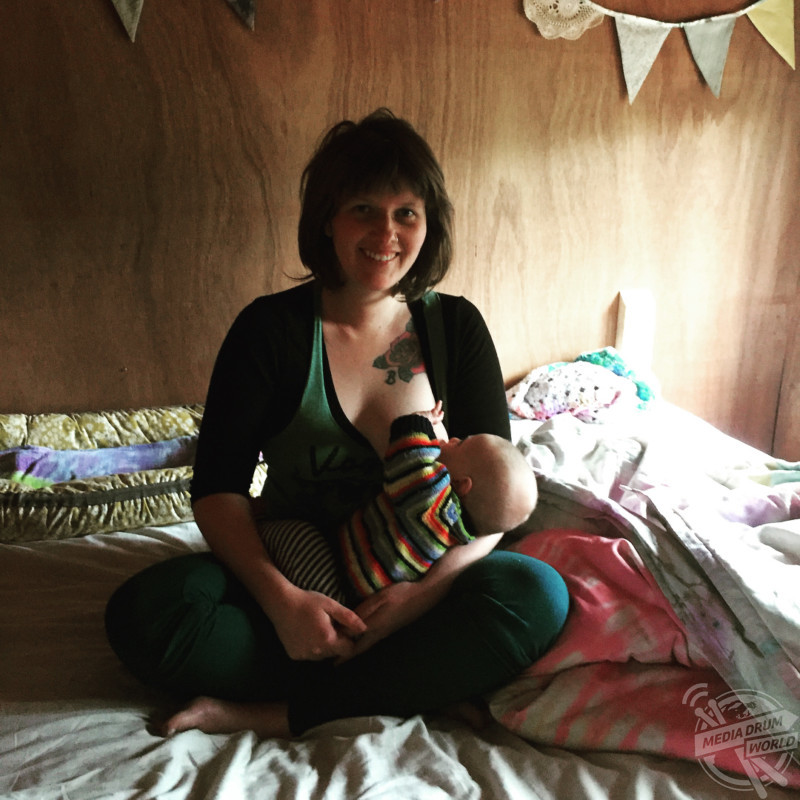
“Home-schooling wasn’t always on the cards but again choosing a natural parenting style and being active in the online community has exposed us to the idea, it really appealed to us and we felt it really complemented our wholistic lifestyle.
“Connection is really important for us in life, to each other and to nature. Sending our kids to school we feel would break this connection. We see home-schooling as an extension of our natural parenting and lifestyle philosophy.
“We usually get up, if it’s winter and the fires out, we re-light it, have breakfast which the kids help make and then do our chores before we start our home school rhythm.
“We do circle time with the little ones and read a story, while the bigger kids get things ready for their lessons or make morning tea.
“Then the little ones play or do some painting or play dough while I help the older kids with their lessons. We then tidy up and make lunch together which usually involves cooking or baking bread.
“Then we go outside; I tend to my garden, lugging water down with watering cans often saved from the shower and the kids play outdoors in the bush, sandpit, riding bikes.
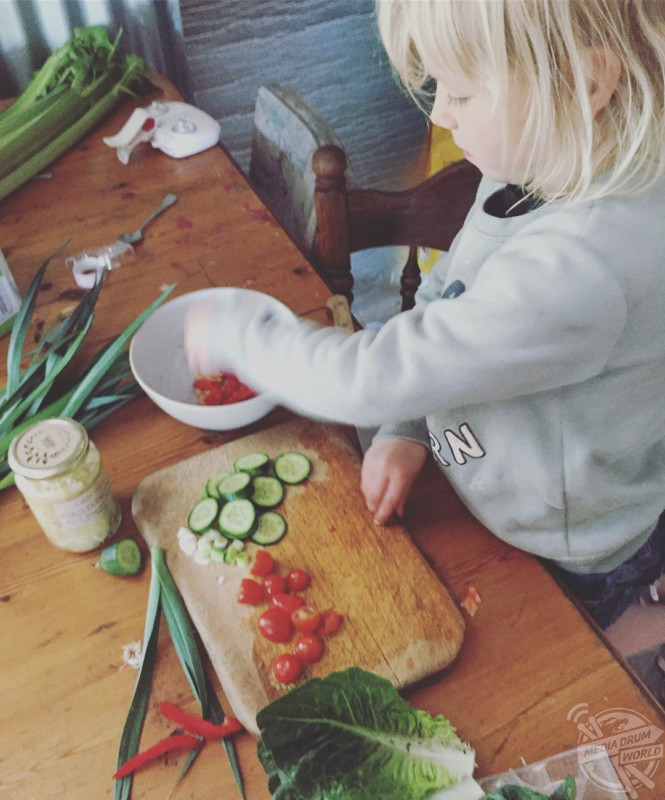
“We often go on nature walks as we have fourteen acres of land. Later in the day the littlest ones usually keep playing outdoors while the bigger ones and myself prepare for dinner and bath time.
“The two little ones don’t know any different and it’s just become such a normal way of living for us now. As for home-schooling, I make sure my youngest kids’ needs are always met first so we can then move on to the older children’s main lessons without too much disturbance.”
Jasmine describes the way they live an off-grid lifestyle as well as how it has benefitted their life. She says that while she has received positive comments from people about the way they live their life, some have described their lifestyle and living conditions as ‘poor’.
“Our block is full off grid in every way; we have tank water, we have a small amount of solar power, but we do also have a generator as well for things like using computers, power tools etc. plus to give the battery a boost if we have had a lot of overcast days,” she said.
“We do have running water now, but we didn’t for some time. We use little twelve-volt pumps for cold running water to the kitchen and bathroom.
“In the kitchen we heat water on the wood stove, but we do have a gas instant hot water service in the bathroom for convenience with so many kids.
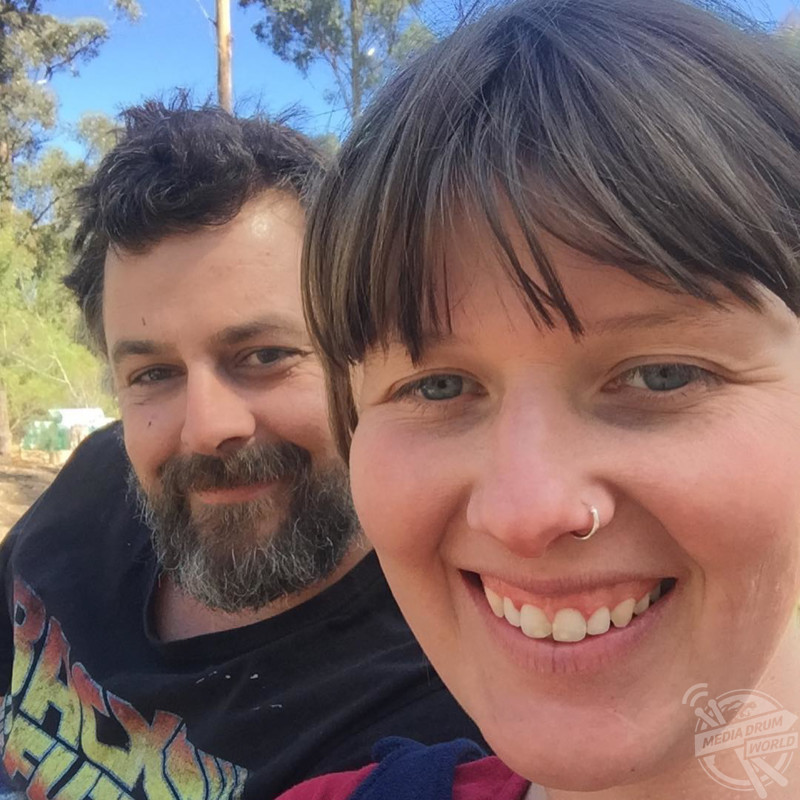
“Most of the year the wood stove is our main source of cooking and heating but in summer we use a barbeque. We have a composting toilet, so we don’t create waste as such in that way and we use it to grow certain crops and on fruit trees and ornamentals.
“All grey water gets put on the gardens and we have plans to put in grey water reed bed system once the house is complete.
“We only have a very small fridge but that doesn’t really bother us as we are plant based so we don’t have a lot of things that will spoil.
“We have had people come up and be absolutely inspired and think it’s fabulous and then we have had others come up and seem to think we live like poor people which just makes me laugh.
“Lots of people don’t understand especially families and sometimes there have been judgments; people always criticise what they don’t understand.
“We love sharing the way we live with others through social media and real life. We find our type of wholistic lifestyle so rewarding and nourishing to the mind, body and spirit.
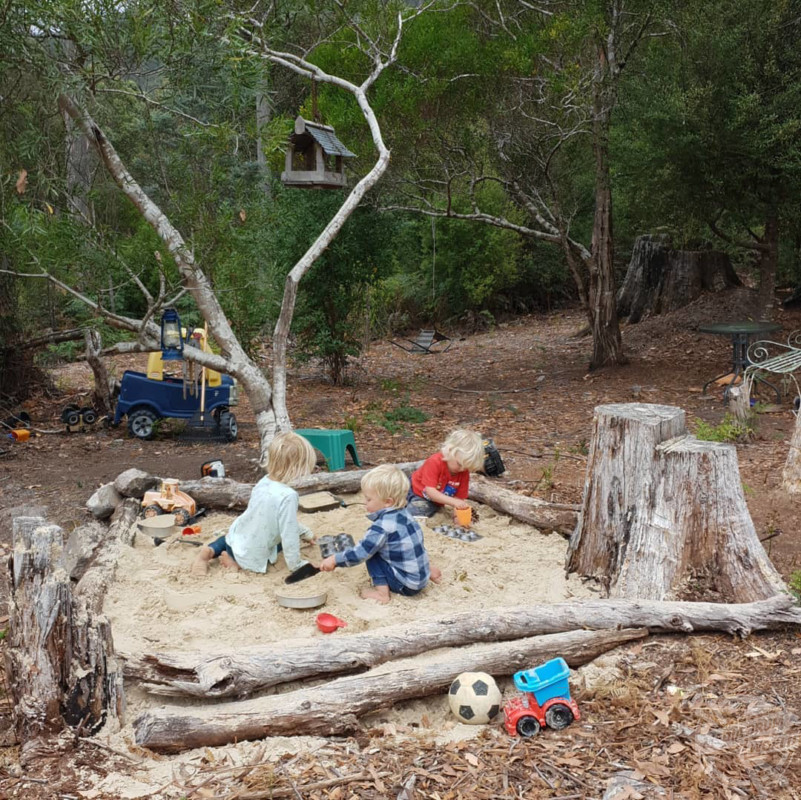
“It’s much closer to the natural lifestyles humans are supposed to lead; closer to nature with their hands in the dirt. This sort of lifestyle keeps you in check.
“You can’t just use electricity and water with no regard to it being an endless supply which is how most people live but the thing is it’s not endless.
“The Earth can’t keep sustaining the modern lifestyles most people live so if we can inspire others to think about making some small steps like installing a DIY composting toilet or growing a garden even that’s great.
“The biggest issue we face is space right now and having so many different aged kids sharing a bedroom while we are in the shack.
“It causes some problems especially for older ones wanting space, so we have had to make sure we try to meet the kids’ needs in other ways like time out at friends’ places.
“We now plan to build our off-grid home and move out of the little shack. We will be doing a full shed conversion. Plans are in the works now to achieve this.
“We will be expanding our gardens to include more vegetable beds and a hot house and once we have fencing the cottage style garden will become food forests.”






